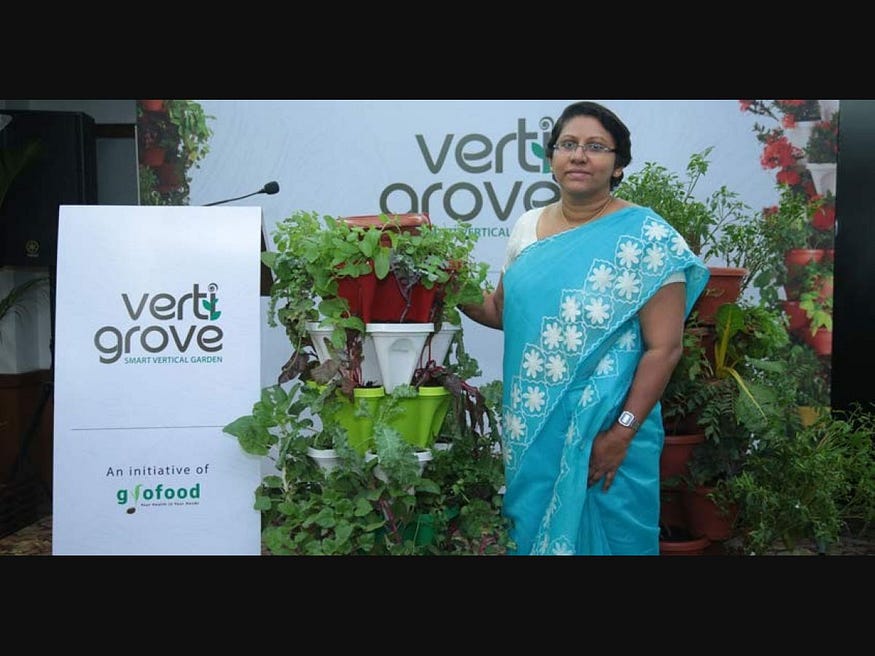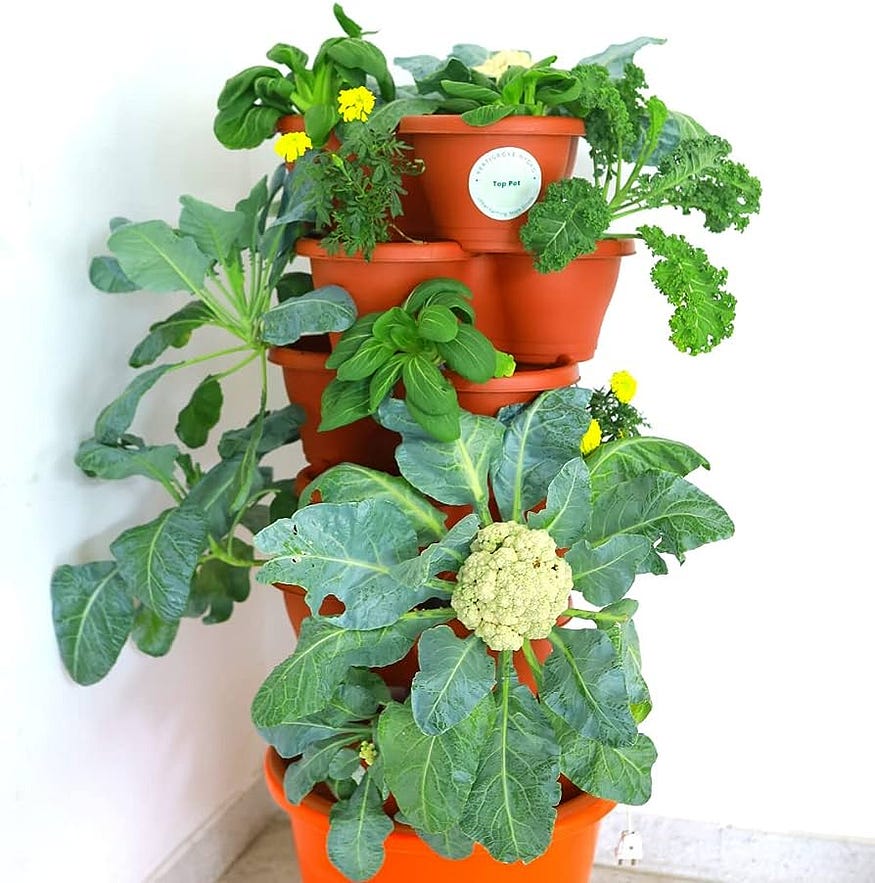- Home >
- Our Actions >
- Ambassador report
2
Comments
[January Thematic Report] An Interview with Ms. Maya Varghese, Founder of the Grow Your Own Food Initiative |
|---|
|
by Deeksha Ravi | 23-01-2024 21:31
|
|
Ms. Maya Varghese is the founder of the Grow Your Own Food (GYOF) Initiative, an enterprise developing products like VertiGrove (a hydroponics system) and the Smart Kitchen Garden (a gardening package for people who have minimal space for growing produce). In this piece, I share excerpts of Ms. Maya’s journey as a founder of a sustainability company.  Can you tell us about your background and what led you to do this work? When I was a kid I grew up surrounded by nature, seeing myself as a part of the system that nature is. I knew that there is something we must give back to the world because we have been given so much. I wanted to actually help a person to grow his or her own food and not just talk about it. My purpose has been to create a solution for that. I started with polyhouses, trying to do organic farming, and then finally hydroponics. I think that with hydroponics, we can create awareness and get a maximum number of urban people to actually do farming, because it’s easy and can be done with less labor. Can you tell us how you promote hydroponics in the communities you work in despite it being non-traditional? Hydroponics uses up to 90 percent less water than growing plants outdoors. The plants also have a higher growth rate. Through this, we demonstrated profitability to people, and they were more inclined towards using our products.  How did COVID affect your operations? It was beneficial in a way. Our original system needed 360 kg of coir, but COVID helped us understand that transportation and delivery wouldn’t be easy that way. It was that that we switched to hydroponics. How did you scale up GYOF? I was fortunate to have been invited by IIM Kozhikode and a Rotaract Club to pitch my idea. They were able to fund GYOF. Apart from funding, we didn’t have any geographical constraints due to our Amazon presence. What were some of the challenges you faced in your journey? The unconventionality of what I was doing was one. When you’re a lion in a circus ring, you know what you’re supposed to do and you just keep doing it. This kind of work isn’t like that. It doesn’t come with a guidebook. Another challenge was being a little introverted at the start. I didn’t feel comfortable speaking publicly, but slowly grew into my role. It was also difficult to show people how they could profit from this new system. It would have been beneficial for us to have them see the advantages more clearly. Finally, what are some of the best strategies you have found to create change? We conducted a lot of workshops, which was a great way to raise awareness. We tried making the structure of agricultural systems more organized. For example, when we heard about a person who was doing soldier fly composting, we collaborated with him. Digital marketing and customer references also made it easy to spread the word. |
|
|









 Former E-gen Ambassador
Deeksha Ravi
Former E-gen Ambassador
Deeksha Ravi
 Previous : [November Free Report] World E...
Previous : [November Free Report] World E...









2 Comments
Her journey exemplifies the impact of continuous sustainability efforts. Nice article:)
Posted 31-01-2024 17:35
Hello, this is mentor Seeun.
It??s great to see you on your feet! It must have been an amazing experience to be able to interview Ms. Maya. However, I??m a little confused as to how this is connected to January??s topic - “green buildings”.
Otherwise, interesting report, and good job!
Posted 25-01-2024 21:41